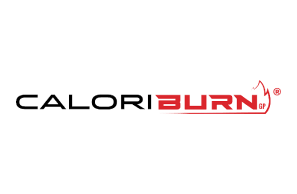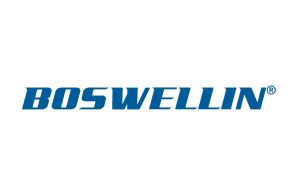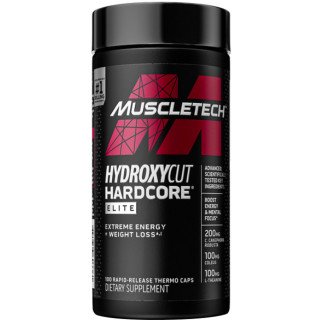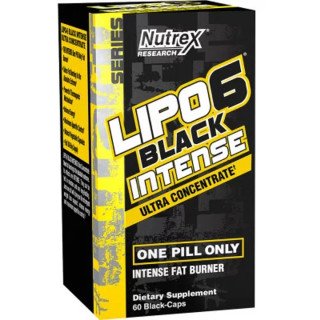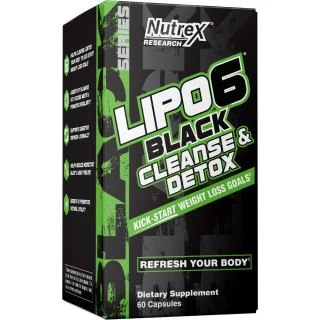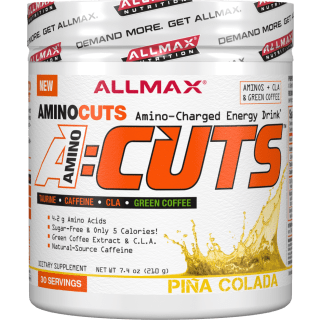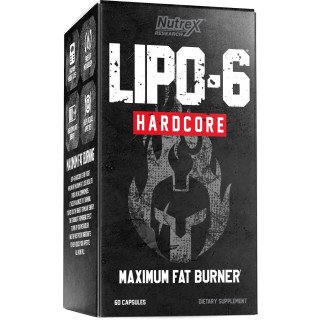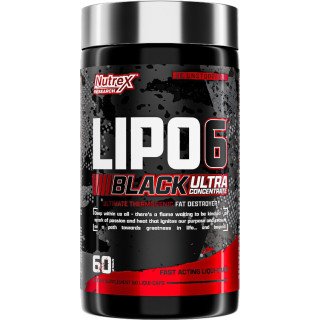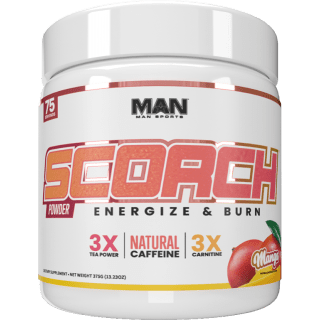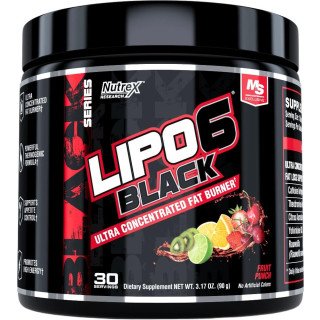Capsimax® is a patented form of capsaicin, which is the compound that gives chili peppers their heat. If you’ve ever...

FAT LOSS
FAT LOSS
Fat loss refers to reducing body fat to help reduce the health risks of being overweight or obese.
Specialty
Ingredients
Specialty Ingredients
Goal OVERVIEW
There are many ways to lose fat, including diet, exercise, and lifestyle changes. A healthy fat loss plan should be tailored to one’s needs and goals. It is important to lose weight healthily. Crash and fad diets are not sustainable and can lead to weight rebound! Consider focusing on gradual changes to your diet and lifestyle that you can stick to for the long term.
A healthy rate of weight loss is 1-2 pounds per week. This may seem slow, but it is more sustainable and less likely to lead to yo-yo dieting. It is important to focus on losing fat, not just weight. Weight loss can be caused by losing muscle mass as well as fat. To ensure that you are losing fat, focus on eating a healthy diet and exercising regularly. Lastly, be patient. Fat loss takes time and effort.
Don’t get discouraged if you don’t see results immediately. Just keep at it, and you will eventually reach your goals. If you are considering losing weight, it is important to talk to your doctor first. They can help you create a safe and effective plan for you.
What You Should Know
span style=”font-weight: 400;”>There are thousands of products marketed to individuals who want to lose fat. One will find products that fit into various categories: fat burners, appetite suppressants, ingredients that help glucose management, fibers that promote a feeling of being full, and fat and carbohydrate blockers. Do your research and choose ingredients that have been extensively researched and validated.
FOOD FOR THOUGHT
If you are healthy and under the supervision of a healthcare provider, you may consider Intermittent fasting (IF) as a popular weight loss strategy. It involves alternating periods of fasting and eating. There are many different IF protocols, but they all share the goal of restricting calorie intake for a certain period each day or week. Do your research and speak to your doctors about if, when, and how long you should do this.

SHAGANDHA® BY SABINSA
Shagandha® is a standardized powdered extract from the roots of Withania somnifera, commonly known as ashwagandha. Shagandha® offers various health benefits, including reducing stress, anxiety, and insomnia while improving cognitive function, reducing inflammation, and boosting the immune system. It is available in capsules, powders, and teas and is often used in herbal mixtures. Considered to be a breakthrough Adaptogenic.
Sponsored Content
FAQ
Fat loss supplements are often marketed as products that can aid in weight loss by boosting metabolism, reducing appetite, or increasing fat oxidation. However, it’s important to note that no supplement can replace a healthy diet and regular physical activity regarding sustainable fat loss. Additionally, the effectiveness of fat loss supplements can vary, and some may have potential side effects. Always consult a healthcare professional before using any supplements.
Here are some commonly used ingredients found in fat-loss supplements:
1. Caffeine:
- Caffeine is a natural stimulant that can temporarily boost metabolism and increase energy expenditure. It may also help suppress appetite.
- Sources: Coffee, tea, energy drinks, caffeine-containing supplements.
2. Green Tea Extract:
- Green tea extract contains compounds called catechins that are believed to enhance fat oxidation and increase metabolic rate.
- Green tea extract might moderately affect fat loss.
3. Garcinia Cambogia:
- Garcinia cambogia is a tropical fruit extract containing hydroxycitric acid (HCA), which is marketed as an appetite suppressant and fat blocker.
- However, research on its effectiveness is limited and mixed.
4. Conjugated Linoleic Acid (CLA):
- CLA is a type of fatty acid associated with reduced body fat.
- Results from studies on CLA’s fat loss effects are inconsistent, and it may have minimal impact.
5. L-Carnitine:
- L-carnitine is involved in transporting fatty acids into cells to be burned for energy. It’s marketed as a fat-burning supplement.
- Research on L-carnitine’s effectiveness for fat loss is mixed.
6. 5-HTP (5-Hydroxytryptophan):
- 5-HTP is a precursor to serotonin, a neurotransmitter that affects mood and appetite.
- Some believe 5-HTP might help reduce appetite and cravings, but more research is needed.
7. Raspberry Ketones:
- Raspberry ketones are compounds found in raspberries that have been promoted for their potential to increase fat metabolism.
- There is limited evidence to support their effectiveness for fat loss.
8. Yohimbine:
- Yohimbine is an alkaloid derived from the bark of the yohimbe tree. It is sometimes used as a fat-loss supplement due to its potential to increase fat mobilization.
- Yohimbine can have side effects and should be used with caution.
9. Apple Cider Vinegar:
- Some believe that apple cider vinegar may aid in weight loss by reducing appetite and improving insulin sensitivity.
- However, the evidence for its effectiveness is debated and should be consumed in moderation.
10. Fat Burner Supplements:
- Some supplements combine multiple ingredients believed to support fat loss, such as caffeine, green tea extract, and other compounds.
It’s important to approach fat loss supplements with caution. Focus on making sustainable changes to your diet and exercise routine, as these are the most effective methods for achieving and maintaining fat loss. If you’re considering using fat loss supplements, consult a healthcare professional to ensure they are safe for your health profile and to get personalized guidance.
First, many unique ingredients have been clinically verified and published and should be considered safe, viable fat-loss ingredients. Like many other dietary supplements, fat loss supplements can have potential side effects and risks. It’s important to be aware of these before considering any supplement. Remember that individual responses can vary; some may be more sensitive to specific ingredients.
Here are some potential side effects of fat loss supplements:
1. Caffeine-Related Side Effects:
- Many fat loss supplements contain caffeine, which can lead to side effects such as jitteriness, restlessness, increased heart rate, elevated blood pressure, and difficulty sleeping.
- High doses of caffeine can also cause gastrointestinal discomfort, upset stomach, and headaches.
2. Digestive Issues:
- Some supplements, especially those containing fiber or stimulants, can cause gastrointestinal distress, including bloating, gas, and diarrhea.
3. Heart-related Issues:
- Some fat loss supplements containing stimulants might put additional stress on the cardiovascular system, potentially leading to palpitations, irregular heartbeats, and increased risk for heart issues.
4. Anxiety and Nervousness:
- Stimulant-containing supplements can exacerbate anxiety symptoms and increase feelings of nervousness or unease.
5. Sleep Disturbances:
- Supplements with stimulants, such as caffeine or yohimbine, can interfere with sleep quality and lead to insomnia or disrupted sleep patterns.
6. Blood Pressure Changes:
- Certain fat loss supplements, especially those containing stimulants, can elevate blood pressure levels, which can be problematic for individuals with hypertension or heart conditions.
7. Liver and Kidney Issues:
- Some supplements might put extra strain on the liver and kidneys, potentially leading to damage over time.
8. Gastrointestinal Irritation:
- Certain supplements can irritate the stomach lining, leading to discomfort, nausea, or even more serious digestive issues.
9. Interactions with Medications:
- Some fat-loss supplements can interact with prescription medications, potentially affecting their efficacy or causing adverse reactions.
10. Allergic Reactions:
- Allergic reactions to supplement ingredients can occur, leading to symptoms like itching, rash, or swelling.
11. Hormonal Imbalances:
- Some supplements can affect hormones and hormone balance, leading to unwanted side effects.
12. Dependency and Tolerance:
- Regular use of stimulant-containing supplements can lead to tolerance, meaning you might need higher doses over time to achieve the same effects. This can increase the risk of dependency.
It’s crucial to approach fat loss supplements cautiously and prioritize a well-balanced diet and regular exercise as the foundation for achieving and maintaining a healthy weight. Before using any supplement, consult a healthcare professional, such as a doctor or registered dietitian, to discuss potential risks, benefits, and how the supplement might interact with your health profile. If you experience any adverse effects while using a supplement, discontinue and seek medical attention if necessary.
The ketogenic diet, commonly known as the keto diet, is a high-fat, low-carbohydrate eating plan designed to induce a state of ketosis in which the body primarily uses fat for fuel instead of carbohydrates. The keto diet has gained popularity as a potential strategy for fat loss due to its metabolic effects. However, its effectiveness can vary from person to person, and this diet has potential benefits and challenges.
Effectiveness Factors:
- Weight Loss: The keto diet can lead to rapid weight loss, primarily due to the loss of water weight as glycogen stores are depleted. Some individuals also experience gradual fat loss over time
- Appetite Suppression: The high-fat and moderate-protein content of the keto diet might lead to increased feelings of fullness and reduced appetite, which can contribute to lower calorie intake.
- Stable Blood Sugar: By minimizing carbohydrate intake, the keto diet can help stabilize blood sugar levels and reduce insulin spikes, supporting fat loss and overall health.
- Fat Oxidation: Ketosis promotes using stored fat for energy, which can contribute to fat loss when combined with a calorie deficit.
Challenges and Considerations:
- Carbohydrate Restriction: The strict limitation of carbohydrates can be challenging to sustain long-term, and some individuals find it difficult to adhere to the diet.
- Nutrient Deficiencies: The elimination of certain carbohydrate-rich foods can lead to potential deficiencies in vitamins, minerals, and fiber.
- Keto Flu: Some people experience flu-like symptoms, known as the “keto flu,” during the initial adaptation period as the body transitions into ketosis.
- Digestive Issues: High-fat intake can lead to digestive issues such as constipation and gastrointestinal discomfort.
- Lifestyle Factors: The keto diet may not align with everyone’s lifestyle and preferences, especially for those who enjoy carbohydrate-rich foods or have cultural dietary practices.
- Athletic Performance: High-intensity exercise might be compromised initially due to limited glycogen availability. Adaptation can take time; some athletes may prefer higher carbohydrate intake for fuel.
- Long-Term Sustainability: The strict restrictions of the keto diet can make it challenging to maintain over the long term.
Individual Variation:
Individual responses to the keto diet can vary based on genetics, metabolism, activity level, and health status. Some individuals experience successful fat loss and improved health markers on the keto diet, while others may not find it effective or sustainable.
Before starting the keto diet or any significant dietary change, it’s recommended to consult with a healthcare professional or registered dietitian. They can help you assess whether the keto diet suits your goals, health condition, and lifestyle. If considering the keto diet for fat loss, it’s essential to focus on nutrient-dense food choices, monitor your body’s response, and ensure you are meeting your nutritional needs.
Choosing a fat-loss supplement should require careful consideration and research to ensure that the supplement is safe, effective, and suitable for your needs, goals and health status. Remember that no supplement can replace a healthy diet and regular exercise for sustainable fat loss. Here are some steps to help you choose a fat-loss supplement:
1. Consult a Healthcare Professional:
- Before adding any supplement to your routine, consult a healthcare professional, such as a doctor or registered dietitian. They can provide personalized advice based on your health status, goals, and potential interactions with medications or medical conditions.
2. Consider Specialty Ingredients:
- Numerous specialty ingredient companies invest millions of dollars into extraction methods used to isolate active constituents of a product. Much money is spent on research to prove and validate structure-function claims about the ingredients’ performance. Use GenMag.com to identify these ingredients and ensure your vetted choice is in your selected product.
3. Research Ingredients:
- Look for supplements with scientifically researched ingredients with evidence of effectiveness for fat loss. Be cautious of products that make unrealistic claims or lack reputable research to back them up.
4. Check Label and Dosage:
- Carefully read the supplement label to understand the ingredients, dosage, and potential allergens. Make sure the dosage matches what’s been studied in research. It’s not uncommon for a study to be used to promote a product without the formula being an exact match for the referenced research.
5. Avoid Proprietary Blends:
- Some supplements include proprietary blends, which list ingredients but not their specific doses. It’s best to choose products with transparent ingredient lists and precise dosages. In most cases, proprietary blends are used to conceal and not reveal. Why would a brand want to conceal a formula? Demand transparency!
6. Research the Manufacturer:
- Choose supplements from reputable manufacturers that adhere to quality standards and have a good track record. Look for brands that follow Good Manufacturing Practices (GMP) and have third-party testing for purity and potency.
7. Understand Potential Side Effects:
- Research potential side effects of the supplement’s ingredients. Be cautious if the supplement contains stimulants or unfamiliar ingredients.
8. Consider Your Health Profile:
- Consider your health status, including any medical conditions you have, medications you’re taking, and allergies. Certain supplements may not be safe for everyone.
9. Avoid Quick Fixes:
- Be skeptical of supplements that promise rapid and extreme fat loss. Sustainable fat loss takes time and requires a balanced approach.
10. Evaluate Cost and Value:
- Compare the cost of the supplement with its ingredient quality, dosage, and potential benefits. Choose supplements that offer good value without compromising on quality. REMEMBER THAT IN MOST CASES, SUPPLEMENTS ARE CHEAP FOR A REASON! It’s not a good deal when the products don’t work. Pay a little bit more and get the best!
11. Read Reviews and Expert Recommendations:
- Read reviews from reputable sources and consult fitness or nutrition experts for guidance. However, keep in mind that individual experiences can vary.
12. Avoid Unrealistic Claims:
- Be cautious of supplements that promise miraculous results without any effort on your part. Fat loss supplements should complement a healthy diet and exercise routine, not replace them.
13. Start with Basics:
- Before considering supplements, focus on building a solid foundation of healthy eating and regular physical activity. Supplements should enhance, not replace, these core practices.
Remember that even with the right supplement, results may be modest, and individual responses can vary. It’s crucial to prioritize your overall health and well-being over quick fixes. If you decide to use a fat-loss supplement, monitor your body’s response and discontinue use if you experience any adverse effects. Always consult a healthcare professional before significantly changing your dietary or supplement routine.
Yes! Most of the time, they are safe, but there are some problematic supplements, usually poorly formulated products. This category, along with energy, are two that most require vigilance. Some exceptional specialty ingredients provide lots of science, but you need to find them. Click here to go to the Fat Loss ingredient section.
The safety of fat loss supplements can vary widely based on the specific ingredients, dosages, and the individual’s health status. While some fat loss supplements may be safe when used as directed and in appropriate doses, others can carry potential risks and side effects. Approaching these supplements cautiously and consulting a healthcare professional before using them is essential.
Here are some key points to consider:
1. Regulation and Quality Control:
- The supplement industry is not as strictly regulated as pharmaceuticals, which means that supplements’ quality, purity, and effectiveness can vary. Seek Specialty Ingredients!
- Choose supplements from reputable manufacturers that follow Good Manufacturing Practices (GMP) and undergo third-party testing for purity and potency.
2. Ingredient Safety:
- Research the ingredients in the supplement and assess their safety. Be cautious of unfamiliar or unregulated ingredients.
3. Potential Risks and Side Effects:
- Many fat loss supplements contain stimulants, herbal extracts, or other compounds that can lead to side effects such as increased heart rate, elevated blood pressure, gastrointestinal distress, and more.
- Certain supplements can interact with medications or pre-existing health conditions, potentially exacerbating health issues.
4. Individual Differences:
- People respond differently to supplements based on genetics, metabolism, health status, and other factors. What is safe for one person may not be safe for another.
5. Short-Term vs. Long-Term Safety:
- Short-term use of some supplements might be safe for some individuals, but the long-term safety of many supplements is not well established due to a lack of long-term studies.
6. Dependency and Tolerance:
- Some supplements, especially those containing stimulants, can lead to dependency and tolerance over time, requiring higher doses for the same effects.
7. Consult a Healthcare Professional:
- It’s a great idea to consult a healthcare or industry professional before using any fat-loss supplement.
- A healthcare professional can assess whether the supplement is safe based on your health status, potential interactions, and individual needs.
8. Focus on Whole Foods:
- Prioritize a balanced diet composed of nutrient-dense whole foods as the foundation for achieving and maintaining a healthy weight.
9.Holistic Approach:
- Fat loss supplements should never be seen as a substitute for a healthy lifestyle that includes regular exercise, proper nutrition, adequate sleep, and stress management.
In summary, while some fat loss supplements are safe, others might be safe, and some are in the no-touch column. Also, whereas some will be safe for specific individuals, the safety of these supplements is not guaranteed, and potential risks should not be underestimated. Always prioritize your overall health and well-being, and consider seeking guidance from a healthcare professional before using fat-loss supplements.
Related Videos
Articles
AstraGin®, is a patented, all-natural compound composed of highly purified saponins from Astragalus membranaceus and Panax notoginseng. The standout feature...
Nutrition21's Chromax ® is superior to other forms of chromium due to its stable chemical structure and superior absorption profile,...







